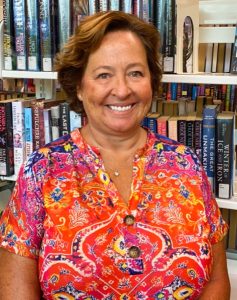The spoken word…how often do we take our ability to use our voices for granted? We delight our parents with those first baby words. We learn to fight with our siblings using harsh words and unkind cuts in a sort of contest – the most cruel comment gets the prize. We tell our families we love them, sometimes automatically, when we leave our homes. We sing in the shower, lifting our voices in song, belting out those show tunes, even if they’re off-key.
The words we use are precious. With spoken words we can share a story; we can whisper words of endearment in our lovers’ ears. We use words to express who we are and what we stand for. What a marvelous gift that is! With our words, we can offer feedback to others – or share with them something they will never forget. Our words and how we use them make us different from any other animal on earth.
But what would you do if you were robbed of your voice; if you could no longer express yourself, if the timbre and tone of your voice were silenced, except in your own frightened mind?
 You do what Palmetto Literacy Council volunteer Jennifer Wingerter did. You fight.
You do what Palmetto Literacy Council volunteer Jennifer Wingerter did. You fight.
While watching a football game with her husband, Cliff, Jeniffer said the left side of her body went numb. “I couldn’t speak,” she said. Cliff picked me up and we drove to the hospital.”
Jennifer said that she was terrified. “In my head I was aware, but I was trapped in my mind,” she said. Trapped in her mind with no voice – what an absolutely terrifying feeling that must have been.
Myriad medical tests ensued. “I was so scared, but the tests revealed nothing.” Jennifer was given a clot-busting medication. After a five-day stay in the hospital, doctors told her that her stroke was “probably caused” by a blocked carotid artery. Jennifer considered herself “blessed.” ‘Except for being unable to talk, I was fine physically. There was no paralysis.’
Jennifer’s daughter, Stephanie, quit her job to care for her mom. “I felt comforted that she was with me. We’ve always been close, but the stroke brought us even closer.
“I couldn’t do much of anything – even lifting a spoon to my mouth was difficult. I used a mirror to watch myself say vowels and consonants over and over again,” she said. Communication between Jennifer and her loved ones took place with pen and paper.
“I felt frustrated. I knew what I wanted to say, but what I wanted, and the reality of my condition were two different things.” Jennifer also felt depressed as would anyone giving up a much-loved profession: teaching. “I taught elementary school for more than 30 years. I loved being a teacher. Giving that up was very painful.”
Add to that fact was the frustration Jennifer felt while trying to get her mouth to mirror what was in her mind. She graduated from voicing consonants and vowels to three-word sentences. Next came flashcards, then more critical comprehension words and concepts. It took Jennifer almost three years of speech therapy – three times a week.
“Eventually words like ‘water’ came back to me, but it was a slow and gradual process,” she said.
In 2022, Jennifer suffered her second stroke. ‘It felt like an out-of-body experience as if I was looking down upon myself, but I wasn’t afraid. I had an angel with me.”
Again, after a gamut of tests, doctors could find no cause for Jennifer’s stroke. “My speech was somewhat impacted, but I was only in the hospital for two days. Within a week I felt fine physically. I did have a lot of fear, just waiting for the other shoe to drop. Doctors diagnosed me with post-traumatic stress disorder. I was afraid to be alone, afraid I’d have another stroke, and my nightmares reflected those fears.”
In 2023, Jennifer suffered yet another stroke – a “mini-stroke.” “I was at home in bed, and I had the worst headache I had ever experienced. This time an ambulance came to the house and brought me to Grand Strand Hospital.” Again, there was no apparent reason for her stroke.
Jennifer has learned to take each day as it comes. “I live moment to moment and try to enjoy each of those moments.”
Jennifer feels she was saved from her strokes for a reason. “I don’t know the reason. My faith is important to me, so that, along with Cliff and Stephanie, kept me going.
With life-changing events come changes to a person’s psyche. Where once she was extroverted Jennifer is now much quieter. She also worries about her speech—that those little slips will cause others to judge her. She was fearful that she was no longer “good enough” when the idea to tutor was brought up by a friend. That fear has gone unfounded because the children she tutors through PLC don’t judge – they accept her unstintingly.
Jennifer has a voice now, and she uses it well. It’s loud and clear and rings with the conviction that she is good enough. She uses her voice to volunteer at the school where she once taught: Burgess Elementary.
And she uses that wonderful voice to tutor not one, but two children from the Palmetto Literacy Council.
And best – and most important of all – Jennifer uses her voice to tell her husband and daughter she loves them. Always.

